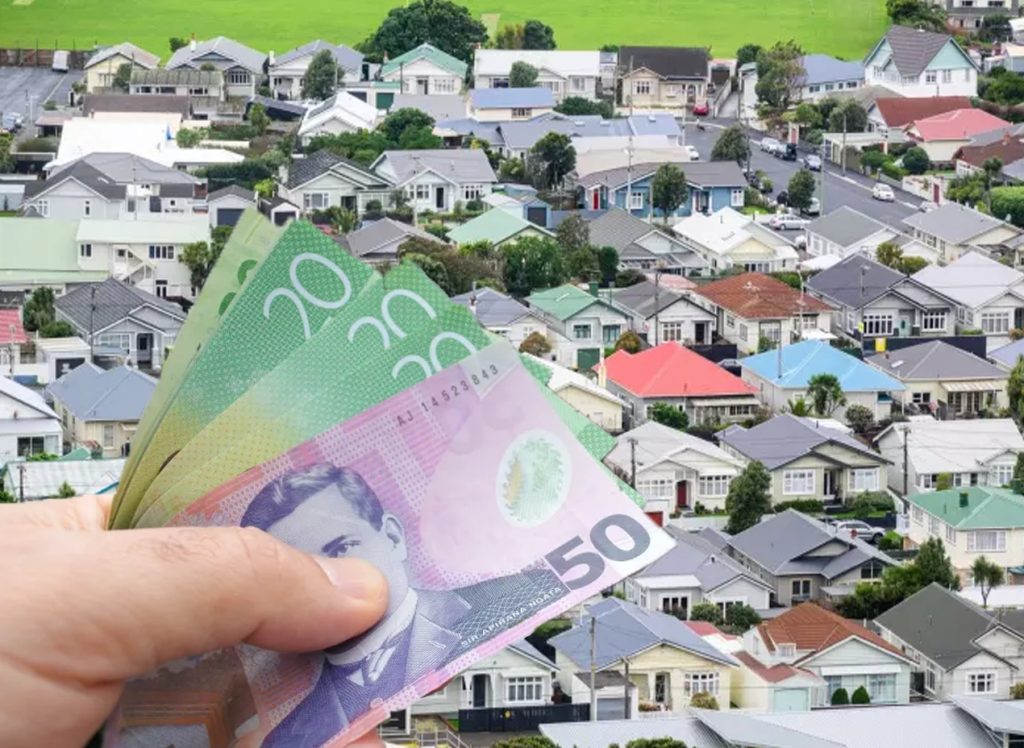
뉴질랜드 금리 인하로 모기지 대출 수요 증가
New Zealand Mortgage Demand Climbs on Interest Rate Cuts, but Full Recovery Remains Elusive
New Zealand’s mortgage lending market has shown its first signs of revival since 2021, following a series of interest rate cuts. Yet, the country’s central bank is cautioning against premature optimism, warning that a full recovery remains out of reach.
According to the latest Credit Conditions Survey released by the Reserve Bank of New Zealand (RBNZ), demand for home mortgage loans began to rebound in early 2025. Analysts attribute the shift largely to the central bank’s decision in August 2024 to slash the Official Cash Rate (OCR) by 200 basis points to 3.5%.
The lowered rates have eased borrowing costs, boosting demand among prospective homebuyers and triggering a noticeable uptick in refinancing activity as borrowers seek to capitalize on more favorable terms. “The combination of increased housing inventory and reduced interest rates has helped lift consumer confidence, driving a recovery in mortgage demand,” the RBNZ stated.
Still, the central bank stopped short of declaring a broader market recovery. “Persistent labor market uncertainty and a sluggish economy continue to weigh heavily on housing finance,” it warned, adding that “the tangible impact of rate cuts on consumer behavior will likely take more time to fully materialize.”
Consumer Credit Lags Behind, with Modest Uptick in Unsecured Loans
In contrast to the mortgage sector, consumer credit continues to show weak performance.
While many banks had predicted increased consumer borrowing over the six-month period following a September 2024 survey, those expectations failed to materialize. Demand for credit cards and secured personal loans declined, reflecting lingering caution among households.
However, one notable exception emerged: unsecured short-term loans saw a marginal rise. Analysts believe this trend points to consumers seeking liquidity to manage rising living costs and unexpected expenses. “We’re seeing more consumers turning to unsecured credit as a stopgap in response to widening income disparities and escalating costs,” the RBNZ observed.
Commercial Real Estate Lending Shows Early Signs of Recovery
The commercial real estate loan market has also begun to show modest signs of recovery. The RBNZ noted that demand in this sector has been “gradually increasing from very low levels” over the past six months.
Falling interest rates have made borrowing for property investment more attractive, improving the return profile for leveraged investments and drawing renewed interest from both domestic and foreign investors. Nevertheless, the central bank cautioned that certain segments—particularly office space—may still face uneven demand, calling for a cautious investment approach.
Business Credit Market Mixed as Firms Prioritize Liquidity Over Expansion
Business lending is currently exhibiting mixed trends. While demand for capital expenditure loans has waned amid high interest rates and global economic uncertainties, firms are increasingly seeking credit to support operational cash flow.
“Rising geopolitical tensions, such as the recent escalation of U.S. tariff threats, are dampening corporate sentiment,” the RBNZ said. “Both small and large businesses are shifting their focus toward maintaining liquidity rather than pursuing growth-oriented investments.”
While the central bank’s latest survey suggests that the housing finance sector may be beginning to respond to monetary easing, it also highlights the uneven pace of recovery across broader credit markets. Consumer and business lending remain subdued, underscoring the challenges ahead for the New Zealand economy.
Analysts suggest that future developments—particularly in interest rate trends, labor market dynamics, and global economic conditions—will play a crucial role in determining the trajectory of financial market recovery in the months to come.

뉴질랜드 금리 인하로 모기지 대출 수요 증가
뉴질랜드 주택 모기지 수요가 2021년 이후 처음으로 상승세를 보이며 금융시장에 미세한 온기가 돌고 있다. 그러나 중앙은행은 이번 반등이 ‘완전한 회복’으로 이어지기에는 아직 갈 길이 멀다는 평가를 내놓았다.
뉴질랜드 중앙은행(RBNZ)이 최근 발표한 신용 조건 설문조사에 따르면, 2025년 초 기준 주택 모기지 대출 수요가 상승 전환된 것으로 나타났다. 이는 2024년 8월 이후 중앙은행이 기준금리(OCR)를 2.0%포인트 인하해 3.5%까지 낮춘 것이 주요 배경으로 분석된다.
금리 하락은 차입 비용을 줄이면서 주택 구매자들의 대출 수요를 촉진했고, 동시에 기존 대출을 보다 유리한 조건으로 전환하려는 리파이낸싱 수요도 늘어나는 모습을 보였다. RBNZ는 “매물 증가와 금리 인하로 소비 심리가 개선됐으며, 이는 모기지 수요 회복에 직접적인 영향을 미쳤다”고 밝혔다.
하지만 중앙은행은 이번 반등이 구조적인 회복을 의미하는 것은 아니라고 선을 그었다. RBNZ는 “고용 시장의 불안정성과 경제 전반의 침체 상황이 여전히 큰 부담으로 작용하고 있다”며, “금리 인하 효과가 실제 소비자 행동에 반영되기까지는 시간이 더 필요하다”고 지적했다.
소비자 신용, 기대 못 미쳐… 무담보 대출만 소폭 증가
주택 모기지와 달리 소비자 신용 부문은 여전히 부진한 흐름을 이어가고 있다.
2024년 9월 설문에서 다수의 은행들은 향후 반년간 소비자 신용 수요가 증가할 것으로 예측했지만, 실제로는 예상을 밑돌았다. 특히 신용카드, 담보 대출 등 주요 금융 상품에 대한 수요가 줄어든 것으로 나타났다.
눈에 띄는 점은 무담보 단기 대출 수요가 소폭 증가했다는 것이다. 이는 생활비 부담과 갑작스런 지출에 대응하기 위한 소비자들의 단기 유동성 확보 움직임으로 해석된다. 중앙은행은 “소득 불균형과 생활비 상승에 대응해 무담보 대출을 찾는 소비자들이 늘고 있다”고 분석했다.
상업용 부동산 대출, 저점에서 점진적 회복
상업용 부동산 대출 시장도 일부 회복의 조짐을 보이고 있다. RBNZ는 “지난 6개월간 상업용 부동산 대출 수요가 낮은 수준에서 서서히 늘어나고 있다”고 밝혔다.
금리 인하로 인해 투자 비용이 줄어들면서 투자자들의 관심이 되살아나고 있으며, 수익률이 회복세를 보이면서 외국인 투자자들의 유입 가능성도 커지고 있다. 다만 중앙은행은 “사무실 등 일부 세부 시장에서는 여전히 수요가 불균형적일 수 있다”며, 시장에 대한 신중한 접근을 권고했다.
기업 신용 수요는 혼조세… 투자보다 유동성 확보에 집중
기업 신용 시장은 뚜렷한 방향성을 보이지 않고 있다. 고금리와 글로벌 경제 불확실성 속에서 기업들의 자본 투자 대출 수요는 위축된 반면, 운영 자금을 확보하려는 수요는 증가하고 있다.
RBNZ는 “미국의 관세 정책 등 외부 변수의 불확실성이 기업 심리에 부정적인 영향을 미치고 있다”며, “중소기업은 물론 대기업도 현금 흐름 유지를 위한 유동성 확보에 더 집중하고 있다”고 설명했다.
이번 RBNZ 설문은 금리 인하가 주택 금융 시장에 긍정적인 신호로 작용하고 있다는 점에서는 희망적이다. 그러나 소비자와 기업 신용 부문은 여전히 위축 국면에 머물고 있어, 경제 전반의 회복세로 이어지기까지는 상당한 시간이 필요할 것으로 보인다. 전문가들은 향후 6개월간의 금리 추이, 고용 시장 변화, 국제 정세가 금융 시장 회복의 열쇠가 될 것으로 보고 있다.
